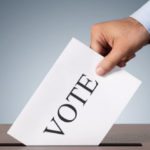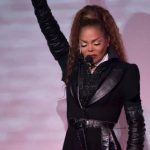 Misconceptions
Misconceptions  Misconceptions
Misconceptions  Crime
Crime 10 Incredible Big-Time Art Fraudsters
 Movies and TV
Movies and TV 10 Most Influential Fictional Objects in Cinema History
 Our World
Our World Top 10 Real Almost‑Cities That Never Materialized
 Technology
Technology 10 Unsettling Ways Big Brother Is (Likely) Spying on You
 Music
Music 10 Chance Encounters That Formed Legendary Bands
 Space
Space 10 Asteroids That Sneaked Closer Than Our Satellites
 Sport
Sport The 10 Least Credible Superstars in Professional Sports
 Animals
Animals 10 Strange Times When Species Evolved Backward
 Facts
Facts Ten Unexpectedly Fascinating Facts About Rain
 Misconceptions
Misconceptions 10 Widespread Historical Myths and the Texts That Started Them
 Crime
Crime 10 Incredible Big-Time Art Fraudsters
 Movies and TV
Movies and TV 10 Most Influential Fictional Objects in Cinema History
Who's Behind Listverse?

Jamie Frater
Head Editor
Jamie founded Listverse due to an insatiable desire to share fascinating, obscure, and bizarre facts. He has been a guest speaker on numerous national radio and television stations and is a five time published author.
More About Us Our World
Our World Top 10 Real Almost‑Cities That Never Materialized
 Technology
Technology 10 Unsettling Ways Big Brother Is (Likely) Spying on You
 Music
Music 10 Chance Encounters That Formed Legendary Bands
 Space
Space 10 Asteroids That Sneaked Closer Than Our Satellites
 Sport
Sport The 10 Least Credible Superstars in Professional Sports
 Animals
Animals 10 Strange Times When Species Evolved Backward
 Facts
Facts Ten Unexpectedly Fascinating Facts About Rain
10 Controversial Advertising Campaigns That Backfired
In today’s fast-paced world of advertising, brands are constantly striving to create campaigns that will capture attention and go viral. However, the drive to be bold or innovative sometimes leads to massive blunders, with ads causing outrage instead of admiration.
These are more than just PR missteps—these campaigns generated global backlash, sparked debates about social issues, and forced brands to reevaluate their approaches. Here are ten contemporary advertising campaigns that backfired spectacularly.
Related: Ten Controversial News Stories Surrounding ChatGPT
10 Pepsi’s “Live for Now” Protest Ad (2017)
Pepsi’s 2017 “Live for Now” ad starring Kendall Jenner quickly became a prime example of how not to co-opt social movements for advertising purposes. The commercial showed Jenner abandoning a photoshoot to join a protest, where she eventually hands a can of Pepsi to a police officer, seemingly resolving the tension between the protestors and the authorities. The ad attempted to align the brand with activism but was widely condemned for trivializing serious social issues, particularly in light of the ongoing Black Lives Matter movement.
The imagery of Jenner, a white supermodel, handing a soda to a police officer to diffuse a protest was viewed as tone-deaf, given the real-world struggles faced by marginalized communities in confrontations with law enforcement. Critics pointed out that the ad seemed to reduce the complex realities of protests to a superficial moment of corporate goodwill. Social media users flooded platforms with memes and criticism, forcing Pepsi to pull the ad within 24 hours of its release. The company issued an apology, but the controversy lingered, and the campaign became a lasting symbol of corporate misjudgment.[1]
9 Heineken’s “Sometimes, Lighter Is Better” (2018)
Heineken found itself at the center of a controversy in 2018 after releasing a commercial for its light beer featuring the tagline, “Sometimes, Lighter Is Better.” The ad showed a bartender sliding a Heineken Light past several people of color before it reached a lighter-skinned woman at the end of the bar. While the campaign was meant to promote the beer’s low-calorie content, the slogan and imagery sparked accusations of racism and insensitivity.
Many viewers, including prominent figures like Chance the Rapper, criticized the ad for its troubling racial connotations, interpreting the phrase “lighter is better” as implying a preference for lighter skin. Heineken responded by defending the ad, stating that the message was solely about the beer’s calories, but the backlash was too severe to ignore. The company eventually pulled the ad and issued an apology, but the damage to its reputation had already been done.[2]
8 Dolce & Gabbana’s Chinese Ad Campaign (2018)
Dolce & Gabbana’s 2018 ad campaign intended to celebrate the fusion of Italian and Chinese culture ahead of a Shanghai fashion show. The ads, however, sparked immediate backlash for their portrayal of a Chinese model struggling to eat Italian food with chopsticks. The campaign was widely criticized for its racial stereotyping and cultural insensitivity, with many accusing the luxury brand of reducing Chinese culture to a caricature.
The situation escalated when alleged racist comments from co-founder Stefano Gabbana surfaced on social media, further inflaming public outrage. Chinese celebrities boycotted the brand, and Dolce & Gabbana’s highly anticipated runway show in Shanghai was canceled. Despite issuing an apology, the brand suffered significant reputational damage in China, a key market for luxury goods. Dolce & Gabbana continues to face challenges in rebuilding its image in the region.[3]
7 Peloton’s “The Gift That Gives Back” (2019)
Peloton, the luxury fitness company known for its exercise bikes, released a holiday ad in 2019 that ignited a firestorm of criticism. The ad featured a husband gifting his wife a Peloton bike for Christmas, and she then records her fitness journey throughout the year. While the commercial was intended to highlight personal transformation and empowerment, many viewers interpreted it as sexist and tone-deaf. The woman, who already appeared fit, was seen as pressured to maintain her physique for her husband’s approval.
Social media users were quick to lampoon the ad, creating memes that mocked its premise. Critics pointed out that the ad perpetuated unhealthy gender stereotypes, with some accusing Peloton of portraying the wife as anxious to meet her husband’s expectations. The backlash was so intense that Peloton’s stock dropped, and the company spent weeks managing the PR fallout. Despite defending its intentions, Peloton acknowledged that the ad did not resonate as expected.[4]
6 Gillette’s “The Best Men Can Be” (2019)
In early 2019, Gillette released an ad titled “The Best Men Can Be,” which tackled toxic masculinity and called on men to challenge behaviors like bullying, sexual harassment, and sexism. The ad, inspired by the #MeToo movement, featured men stepping in to stop negative behaviors and promoting positive male role models [LINK 5]. While the campaign was praised by some for addressing an important social issue, it also sparked significant backlash.
Critics accused Gillette of alienating its core audience by appearing to lecture men about their behavior. Some saw the ad as overly political and calls for boycotts quickly gained traction online, with detractors claiming that the ad unfairly generalized all men as complicit in toxic behavior. Despite the controversy, Gillette stood by the message. However, the polarizing response highlighted the risks brands face when wading into social and political issues.[5]
5 H&M’s “Coolest Monkey in the Jungle” Hoodie (2018)
In 2018, H&M found itself embroiled in a major controversy after releasing an ad featuring a Black child wearing a hoodie that read “Coolest Monkey in the Jungle.” Given the historical use of “monkey” as a racial slur against Black people, the ad was widely condemned for its insensitivity. Social media erupted in outrage, with many accusing the brand of perpetuating harmful racial stereotypes.
Celebrities, including The Weeknd, severed ties with H&M in response to the ad, and calls for boycotts spread across the internet. The company quickly pulled the ad and issued a public apology, acknowledging that they had failed to consider the cultural implications of the imagery. Despite the swift response, the controversy raised important questions about the lack of diversity and cultural awareness in advertising.[6]
4 Nivea’s “White Is Purity” Campaign (2017)
In 2017, Nivea released an ad campaign in the Middle East that featured a white woman dressed in white clothing, accompanied by the slogan “White Is Purity.” The campaign was intended to promote the brand’s deodorant line, but the combination of imagery and messaging immediately sparked outrage online. Critics condemned the ad for promoting racist connotations and reinforcing outdated beauty standards.
Social media users were quick to point out the problematic implications of equating purity with whiteness, and the backlash spread rapidly. Nivea swiftly pulled the ad and issued an apology, stating that the campaign was not meant to offend. However, the controversy remained a stark reminder of how easily marketing campaigns can go wrong when they fail to account for cultural sensitivities.[7]
3 Gap’s “Love for All” Ad (2017)
Gap’s 2017 “Love for All” campaign was meant to celebrate diversity and inclusion, but one particular image in the campaign led to widespread criticism. The ad featured a group of children from different racial backgrounds, but viewers took issue with a white child resting their arm on the head of a Black child. Critics argued that the image reinforced racial stereotypes and depicted a troubling power dynamic.
The backlash was swift, with many accusing Gap of insensitivity and poor judgment. The company quickly removed the image from its platforms and issued an apology, explaining that the intention was to promote unity, not division. Despite the brand’s efforts to rectify the situation, the incident underscored the importance of thoughtful representation in advertising.[8]
2 Kendall Jenner’s “Fyre Festival” Promo (2017)
Kendall Jenner, along with other high-profile influencers, became embroiled in the infamous Fyre Festival scandal after promoting the event on Instagram. The festival, marketed as a luxurious music experience in the Bahamas, turned out to be a complete disaster, with attendees arriving to find poor conditions, inadequate food, and no performances. Jenner, who was reportedly paid $250,000 for a single Instagram post promoting the festival, faced significant backlash for endorsing an event that turned out to be a scam.
As the details of the festival’s failure emerged, Jenner and other influencers were criticized for their role in promoting the event without conducting proper due diligence. The backlash led to lawsuits against the festival’s organizers, and the controversy became a cautionary tale about the risks of influencer marketing.[9]
1 Burger King’s “Women Belong in the Kitchen” (2021)
On International Women’s Day 2021, Burger King UK launched a campaign that was intended to highlight the gender disparity in the culinary industry. The campaign’s headline, however, read “Women belong in the kitchen,” a provocative statement that immediately sparked outrage. While the tweet was intended to draw attention to the issue of gender inequality in the restaurant industry and promote scholarships for female chefs, many interpreted it as a sexist remark.
The backlash was swift and widespread, with social media users criticizing Burger King for using such a tone-deaf phrase, especially on a day meant to celebrate women’s achievements. Although the brand quickly deleted the tweet and issued an apology, the controversy overshadowed the campaign’s intended message of support for women in the culinary field.[10]








